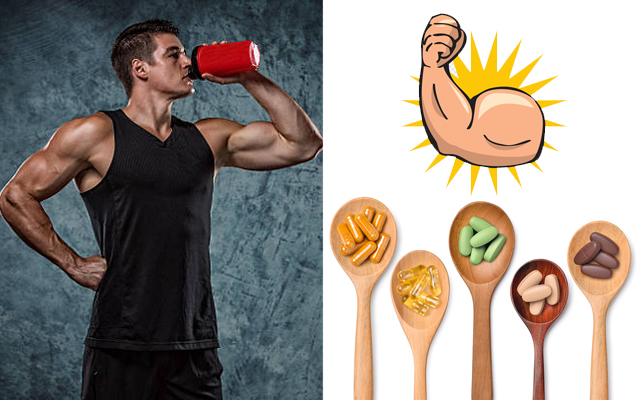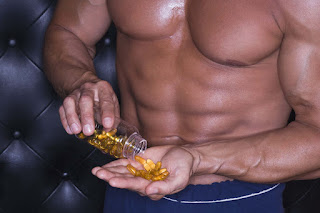Because of marketing, opinions, fads, and the latest trends, every top 5 supplement list will be different. This is a money-making industry, and people are waiting to take your money. To be honest, we don't need pills to lose weight, gain muscle, or improve performance.
In truth, we can get the majority of our critical nutrients from eating healthy foods to achieve the body we want. Before you go, there are a few substances that have shown promise in terms of improving our fitness. Studies are continually being conducted to obtain more conclusive facts.
Supplements are still unregulated, and as a customer, you should proceed with caution. Before you spend your hard-earned money on supplements, do some research, chat to your doctor, and keep track of your improvement.
Before you go out and buy a bunch of supplements that promise to make you fit, do your research. Now that you've read with an open mind, consider the following supplements, which are backed by scientific data and frequently asked about when it comes to increasing fitness.
5 Supplements to Help You Reach Your Fitness Goals
Fish Oil
Docosahexaenoic acid (DHA) and eicosapentaenoic acid (EPA) are two forms of omega-3 fatty acids found in fatty fish.
Omega 3 fats have already been linked to a lower risk of heart disease, and now studies like the one published in The Journal of the International Society of Sports Nutrition show that fish oil supplementation improves neuromuscular function in endurance athletes.
"The study suggests that supplementation with DHA produced perceptual-motor benefits in female elite athletes and that DHA could be a beneficial supplement in sports where decision making and reaction time efficiency are important," according to a study published in The Journal of Sports Science and Medicine on female elite soccer players.
BCAAs (Branch Chain Amino Acids)
Branched-chain amino acids (BCAAs) contain leucine, isoleucine, and valine, and they play a vital role in protein synthesis and glucose uptake in human cells. These amino acids play a crucial role in muscle development and recuperation after exercise.
BCAAs are found in lean protein and can be gained by consuming them. They may be used by people on specific specialized diets or athletic training programs. Supplementation isn't necessary for many people because they can acquire all of the nutrients they need from their regular diet.
Some research studies have looked into the various ways that branched-chain amino acid supplements can help if you don't get enough in your normal diet.
BCAA supplementation can help minimize exercise-induced muscle damage, according to a comprehensive study published in the 2017 edition of Nutrients, as long as the extent of muscle damage is low-to-moderate. The optimum supplementation method, according to the researchers, was to take the supplement before exercise and to consume a high daily BCAA intake (more than 200 mg per kg of bodyweight per day) for at least 10 days, starting at least seven days before the harmful exercise.
Vitamin D
According to the National Institutes of Health, the majority of Americans take less vitamin D than is advised. 4 Vitamin D is found in dairy products and can also be obtained from natural sunshine. To maintain optimal health and fitness, you must consume a source of vitamin D daily.
"Vitamin D may increase athletic performance in vitamin D-deficient athletes" and "may also protect the athlete from many acute and chronic medical disorders," according to an abstract published in Medicine and Science in Sports and Exercise.
"Despite the minimal evidence available at the time, players and trainers in the early twentieth century believed that UVB radiation was advantageous to sports performance," according to an article published in the Scandinavian Journal of Medicine & Science in Sports.
"A growing body of research suggests that vitamin D has a functional role in skeletal muscle, with potentially important implications for young, otherwise healthy athletes' performance and injury profiles."
Caffeine
Caffeine is commonly found in fat-burning supplements, weight-loss products, and performance-enhancing items. A good cup of black coffee can improve your metabolism while also providing antioxidants. When it comes to caffeine, more isn't always better, so act with caution before utilizing this product.
Caffeine and performance, according to the International Society of Sports Nutrition. "It is clear that caffeine is ergogenic to athletic performance, although this is dependent on the athlete's condition as well as the intensity, duration, and modality of exercise."
"Not only is caffeine a brain stimulant... but it also inhibits receptors, giving you a surge of energy and potentially increasing mental performance and decreasing age-related mental decline," according to a Harvard Health Publication from 2014. 8 According to the guidelines, ingesting low-to-moderate quantities of caffeine, ranging from 3 to 6 mg per kilogram of body weight, 60 minutes before exercise can be beneficial.
Creatine
Creatine is one of the most well-studied and extensively utilized supplements for muscular development and strength. Creatine gives your muscles the energy they need to contract.
Creatine is found naturally in the body as well as in foods such as meat, dairy, and eggs. Creatine monohydrate is one of the most popular supplements on the market for athletes, but there is also emerging evidence that it may also help prevent sarcopenia in older persons (loss of skeletal muscle mass).
Creatine monohydrate was once thought to be beneficial only to athletes who engaged in high-intensity intermittent resistance/power workouts. However, there is some evidence that it may help athletes who expend high amounts of glycogen during training and/or sporting events to enhance muscle glycogen storage.
Creatine supplementation at a dose of 3-5 grams per day, or 0.1 g per kilogram of body mass per day, appears to be well tolerated in adults, according to research.











0 Comments